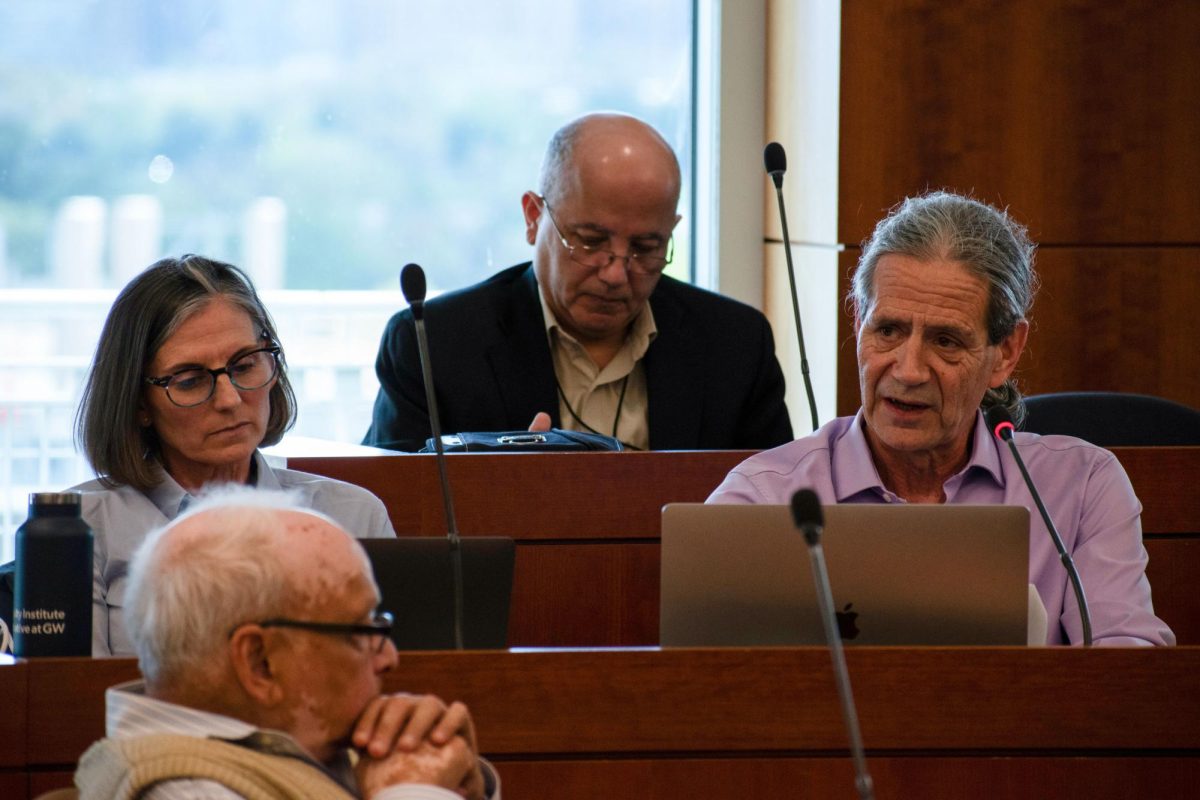The Faculty Senate will discuss a resolution at its meeting Friday defining faculty’s role in the process of revising and creating new University policies.
Guillermo Orti, the co-chair of the Professional Ethics and Academic Freedom Committee and a professor of biology, will introduce a resolution that encourages University leadership to uphold shared governance principles — the participation of faculty, students and staff in decision-making — and “meaningfully” consult faculty on policies that affect faculty and students. The resolution comes after faculty criticized the University for a lack of communication and faculty input on decision making regarding GW’s handling of pro-Palestinian campus protests last spring.
The resolution states that the use of the term “consulting with faculty” by the administration should mean adequate opportunities for the Faculty Senate and its committees to consult on proposed policies, the policies being posted to the senate’s website and a formal notice that a public comment period has begun. The resolution adds that the policies should be publicly posted for at least 60 days of review before being approved and administration should address feedback from faculty before officially announcing the policy.
An appendix to the resolution states that University President Ellen Granberg and Provost Chris Bracey told faculty in June that they will convene working groups of faculty members to address “community challenges” facing the University and recommend how the University should address them this academic year.
The Provost’s office has received and is reviewing reports from the groups from the summer that included subjects like community conversations, free speech, humanitarian efforts in Gaza, lecture series on “difficult topics” like the war in Gaza, diversity at GW and sustainable investing, according to the University’s Strengthening Our Community website.
Granberg and Bracey announced the Strengthening our Community initiative in January, which outlined measures on handling university life during times of conflict, support for those affected by the war in Gaza and doxxing victims, as well as officials’ intent to review free speech and conduct policies in the “coming months.” The website was updated in August to include a plan to promote free speech, new safety and security measures, resources on “expressive activities” and links to University codes and policies.
The resolution also calls for officials to not consider “consultation” with the senate as an agreement or endorsement by the senate without an official vote. The resolution states that it recommends the new definition to apply to new interpretations of policies, like those on the Free Speech Expression website.
Discussions of shared governance principles have been recurring in the senate since the departure of former University President Thomas LeBlanc after the senate voted he violated shared governance principles by implementing a plan to cut University enrollment and increase the number of STEM students. Shared governance surfaced again after the Board of Trustees directed former interim University President Mark Wrighton to arm GW Police Department officers in April 2023 and faculty said the decision lacked faculty consultation.
The senate will also vote on nominees for membership to their standing committees. They will also vote on a resolution to memorialize Murli Gupta, a former faculty senator and senator of mathematics, who died on Aug. 19 at 78, according to his obituary.
Granberg and Bracey will introduce new administrative staff hires from last academic year and over the summer, including Senior Vice President and Chief of Staff Scott Mory, Associate Vice President and Director of Athletics Michael Lipitz, Interim Vice Provost for Research Bob Miller, Associate Provost for Academic Planning and Assessment Karen Froslid-Jones and Multicultural Student Services Center Director Vanice Antrum.
Granberg, Bracey and Faculty Senate Executive Chair Ilana Feldman will also all share reports.





